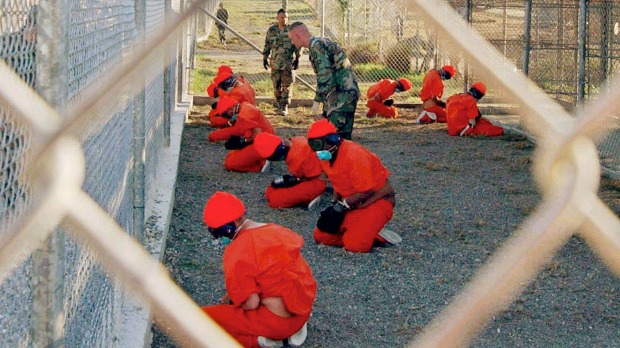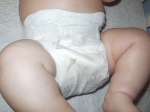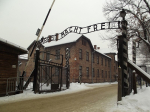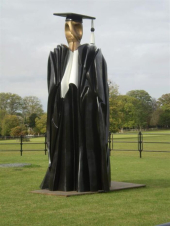
A haunting picture of a forest and photographs of Guantanamo Bay - eerie locations where extraordinary rendition took place lift the veil in art form on government methods to counter terror.
“Extraordinary rendition involved very ordinary places,” said artist Edmund Clark, pointing at the forest picture, which is part of the new exhibition “War of Terror” that opens in London on Thursday.
The exhibition’s loose sequence starts with the theme of extraordinary rendition, followed by photographs of the Guantanamo Bay prison, and ends with the experience of a man subject to a form of house arrest for suspected jihadists in Britain.
Award-winning British photographer Clark uses multimedia installations to portray “the unseen processes, sights, and forms of control and incarceration” used by governments in the name of counterterrorism.
Extraordinary rendition, whereby suspects were transferred covertly to a third country or to U.S.-run detention centers, became controversial immediately after it began following the Sept.11, 2001 attacks.
According to the Open Society foundation, there have been more than 100 individuals rendered by the CIA.
The Council of Europe found that 14 European countries had tolerated the secret transfer of terror suspects by the United States.
“I’ve used as many visual forms as possible to show the spectacle and scale. My aim is to show that the war on terror affects not only the geopolitical sphere but also the personal,” Clark told AFP.
“The theme that underpins everything is how terror affects all of our lives and changes the way we think about fear,” he added.
For the artist it was important that the audience understand that some of the forms of control took place in ordinary places like suburban houses, hotels, or forests hiding military bases and that inmates led normal lives before being taken away.
“Because of the media, it is easy to feel disconnected from these subjects.
I want people to think about how they see these subjects,” he said.
Clark became interested in the topic after he took some photographs of ex-Guantanamo prisoners who returned home to Britain. He found the contrast between the lives of these people while in prison and their return to normality fascinating and felt the need to expose this.
The photographer hopes “that the exhibition will make people reflect about whether our government’s current responses to terrorism erode the legality and ethics of imprisonment of individuals thought to have links with terrorism.”
The exhibition runs until Aug. 28. afp, photo by smh.com.au


































